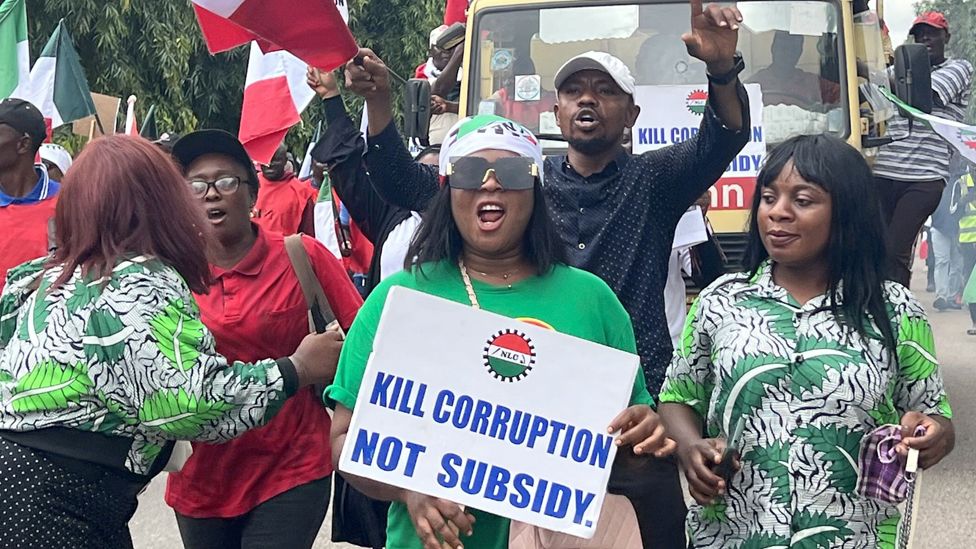-

-
-
Loading

Loading

Nigeria's President Bola Tinubu has announced a six-month increase to the minimum wage in response to workers planning an indefinite strike. The unions have been demanding a raise in the monthly wage to $255 to offset the significant rise in living costs since Mr Tinubu took office. However, the president has only increased the monthly minimum salary by $32, bringing it to $70. He has also promised to expedite the implementation of affordable gas-powered buses to assist with the recent threefold increase in fuel prices. This rise in prices came after Mr Tinubu removed a fuel subsidy that had maintained low petrol prices for many years in Africa's largest economy. Additionally, the country recently abandoned its currency peg, resulting in a substantial decrease in the value of the naira. Consequently, struggling Nigerians have been grappling with high inflation and increased import costs. In a televised address commemorating the 63rd anniversary of Nigeria's independence from the UK, President Tinubu unveiled measures aimed at alleviating the current economic hardships. He acknowledged the burden shouldered by the nation's people and expressed his desire for these difficulties to not exist. However, he emphasized the necessity of enduring the current challenges to achieve a better future. The 71-year-old reiterated that although reforms would be painful, they would be worthwhile, as the government could allocate the substantial funds previously allocated to fuel subsidies towards projects like the compressed natural gas bus network. He envisioned a Nigeria where the nation's resources are equitably shared among all citizens rather than concentrated in the hands of a select few, thereby eradicating hunger, poverty, and hardship. Despite the government's plea for the suspension of the strike to allow for further negotiations, the main labor unions, Nigeria Labour Congress (NLC) and the Trade Union Congress (TUC), have announced that they will proceed with the planned strike starting on Tuesday. The union leaders argue that the government has not adequately addressed the suffering caused by the removal of the fuel subsidy and have rejected the government's appeal for more time for negotiations.